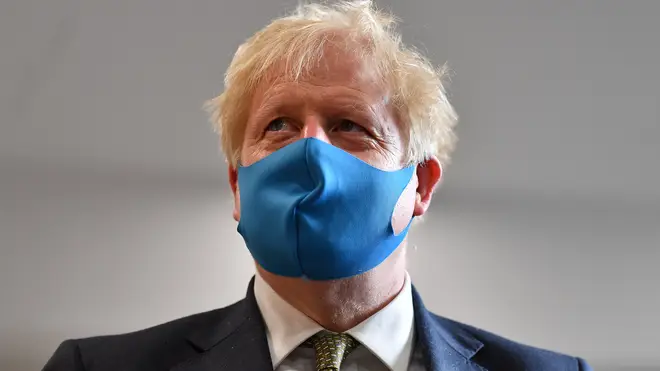
Nick Ferrari 7am - 10am
1 September 2020, 22:01 | Updated: 1 September 2020, 22:46

Failure from the government to recognise the limitations of scientific advice has cost the country "a significant number of additional lives" to coronavirus, a think-tank has said.
A report from the Institute for Government (IfG) on Tuesday has said that simply "following the science" was not enough to adequately respond to the COVID-19 outbreak as officials should have been prepared to act "in the absence of scientific certainty".
"Failure to do so now seems likely to have cost a significant number of additional lives, and contributed to the UK suffering the highest excess death rate in Europe over the period to the end of May," it said.
Looking specifically at the early days of the pandemic, the IfG also criticised the government's ambitions to reach 100,000 tests per day by the end of April and said it had "lacked a wider sense of strategy" at times.
READ MORE: UK must 'not surrender' to EU over fisheries in Brexit talks

Dr David Nabarro on the safety of returning to work during coronavirus
The diagnostics industry and NHS had not been consulted before this test target was set, the report noted, adding that Health Secretary Matt Hancock had made the commitment "without a strong enough sense of how the government would use additional capacity".
"Ministers made much of 'following the science'," it said.
READ MORE: Schools Minister Nick Gibb says 'we're back on track' as schools reopen today
"But it is not enough to use evidence: ministers and civil servants also need to understand the limitations of both the evidence base and the forums through which it is channelled, and, difficult as it might be, ministers must be prepared to act in the absence of scientific certainty."
Turning to how the lockdown affected schools and wider guidelines, the IfG said closures and social distancing measures had been considered in February, but that some "key aspects" such as remote working arrangements and guidance for schools and police "were not considered until after decisions had been made".
READ MORE: Glasgow tightens coronavirus restrictions after rise in cases
Despite these criticisms, the report did then praise the economic schemes that had been introduced, pointing to it as evidence that ministers and officials "can find fast ways to consult those who will be affected by a policy or programme and think through how it will be carried out, before making a decision."
In conclusion, Sarah Nickson, a researcher and IfG, said poor decision making need not be an "inevitable consequence of a crisis", but said fast-moving situations would make it more difficult to fix mistakes early on.
She added: "That means that consulting fast and considering implementation at the outset are all the more crucial."
Listen & subscribe: Global Player | Apple Podcasts | Google Podcasts | Spotify